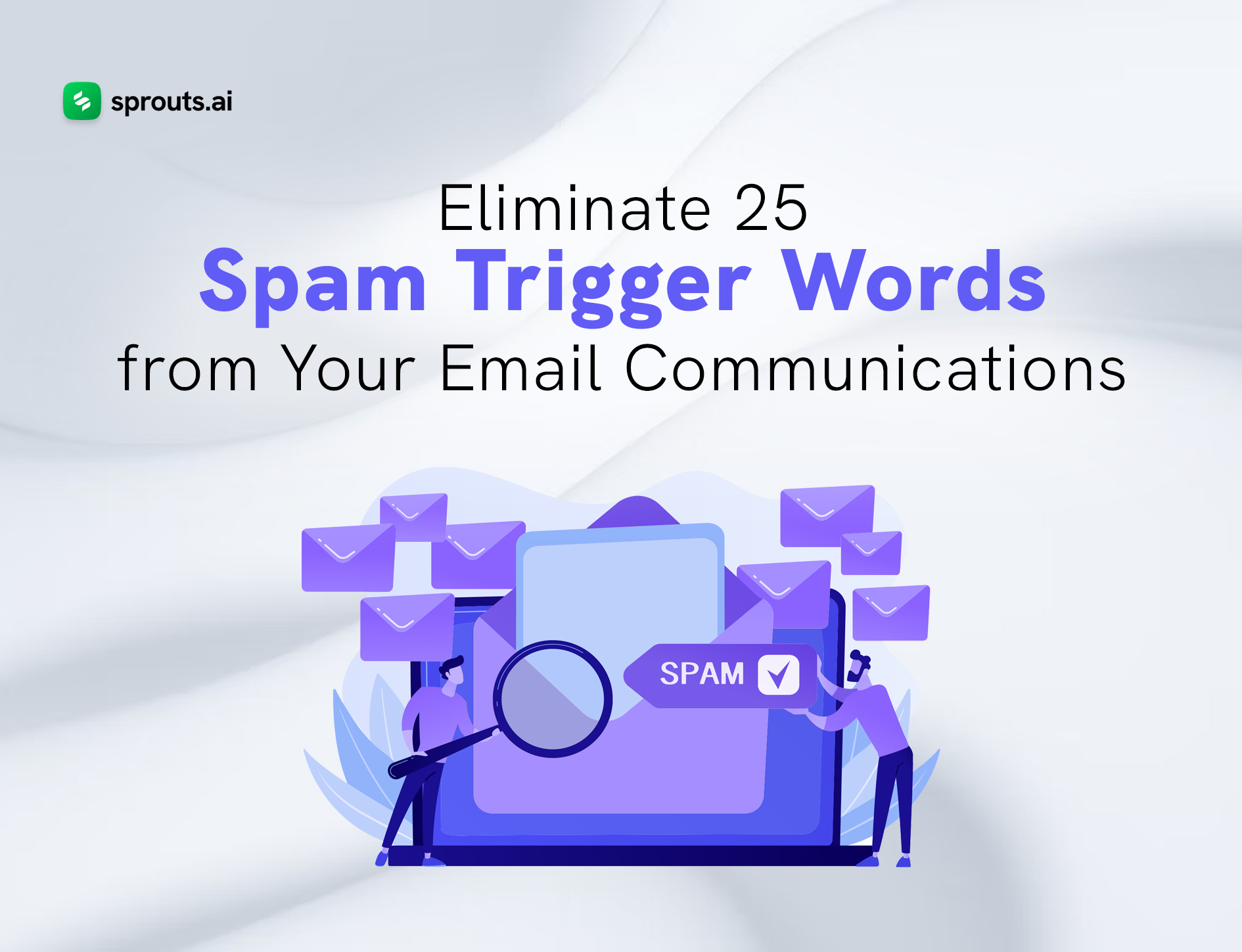Raise your hand if you’ve ever crafted the perfect email, hit send with anticipation, then…silence. No reply, no bounce notification, just the unnerving feeling your message vanished into the digital void.
It’s happened to all of us. The culprit behind these email ghosting experiences? Spam filters. These digital gatekeepers are on constant patrol, scanning for suspicious words and phrases that might signal spam. Unfortunately, sometimes even legitimate emails get caught in the crossfire. Spam filters are designed to protect users from unsolicited and potentially harmful emails.
To ensure that your emails reach their intended recipients and aren’t flagged as spam, it’s essential to be mindful of the words you use. By eliminating spam trigger words from your email communications, you can increase the likelihood that your messages will be delivered successfully.
Here are 25 spam trigger words you can avoid in your emails:
- Free: While offering something for free may be enticing, this word is often associated with spam and can trigger filters.
- Guarantee: Making bold guarantees can raise red flags for spam filters. Instead, focus on demonstrating value without resorting to exaggerated claims.
- Act Now: Urgency can be effective in marketing, but it’s also a common tactic used by spammers. Use discretion when employing urgent language in your emails.
- Limited Time: Similar to “Act Now,” phrases like “Limited Time Offer” can trigger spam filters due to their association with promotional content.
- $$$: Symbols like dollar signs are often used in spam emails to grab attention. Avoid using them excessively or out of context.
- Cash: Mentioning cash transactions or financial incentives can set off spam filters, particularly in unsolicited emails.
- Opportunity: While legitimate opportunities abound, this word is frequently used by spammers to lure recipients into dubious schemes.
- Discount: Offering discounts is a common marketing tactic, but be cautious when using this word to avoid triggering spam filters.
- Earn: Phrases like “Earn Money Fast” can come across as spammy and should be avoided in professional communications.
- Secret: While it may seem enticing to offer something “secret” or exclusive, this word is often associated with spammy clickbait and should be avoided in professional emails.
- Weight Loss: Like “Viagra,” mentioning weight loss products or programs can instantly flag your email as spam.
- Credit Card: Discussions about financial information, including credit cards, are best handled with care to avoid triggering spam filters.
- Congratulations: While genuine congratulations are always appreciated, this word is frequently used by spammers in phishing emails.
- Save: While saving money is a legitimate concern for many consumers, using this word excessively can trigger spam filters.
- Click Here: Phrases that prompt the recipient to take immediate action, such as “Click Here,” are often associated with phishing attempts and should be avoided.
- Risk-Free: Offering products or services as “risk-free” can raise suspicions and trigger spam filters.
- Winning: Promising recipients that they are “winning” something can trigger spam filters due to its association with sweepstakes and contests.
- Incredible: Superlatives like “incredible” can trigger spam filters if they’re used excessively or without context.
- Congratulations: While it’s natural to want to congratulate someone, using this word in email subject lines can trigger spam filters, especially when paired with phrases like “You’ve Won!”
- Urgent: Urgency is a common tactic used by spammers to elicit quick responses. Avoid using this word unless absolutely necessary.
- You’re a Winner!: This phrase is a classic example of spammy language and should be avoided at all costs.
- Don’t Delete: Using negative language like “Don’t Delete” can actually prompt recipients to do the opposite and trigger spam filters.
- Re:: While using “Re:” in the subject line to indicate a reply is common, it’s also used by spammers to trick recipients into opening emails.
- Risk-Free: Offering products or services as “risk-free” can raise suspicions and trigger spam filters.
- Order Now: Similar to “Act Now,” this phrase implies urgency and can trigger spam filters if overused.
By eliminating these spam trigger words from your email communications, you can improve deliverability and ensure that your messages are received and read by their intended recipients. Make sure to focus on providing value and building genuine relationships with your audience, rather than resorting to spammy tactics to get noticed. With thoughtful and strategic communication, you can achieve your goals without triggering spam filters or alienating your audience.

